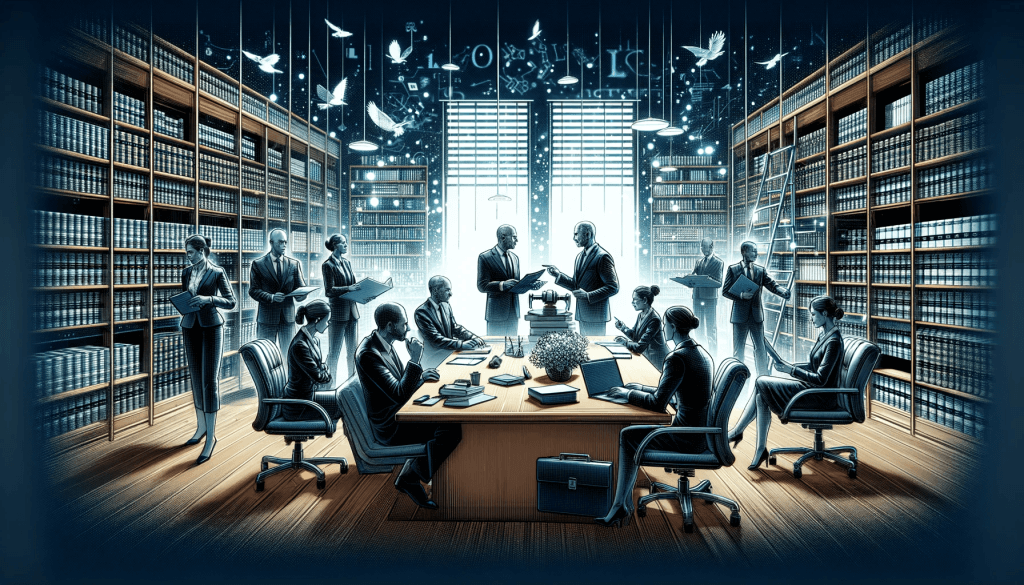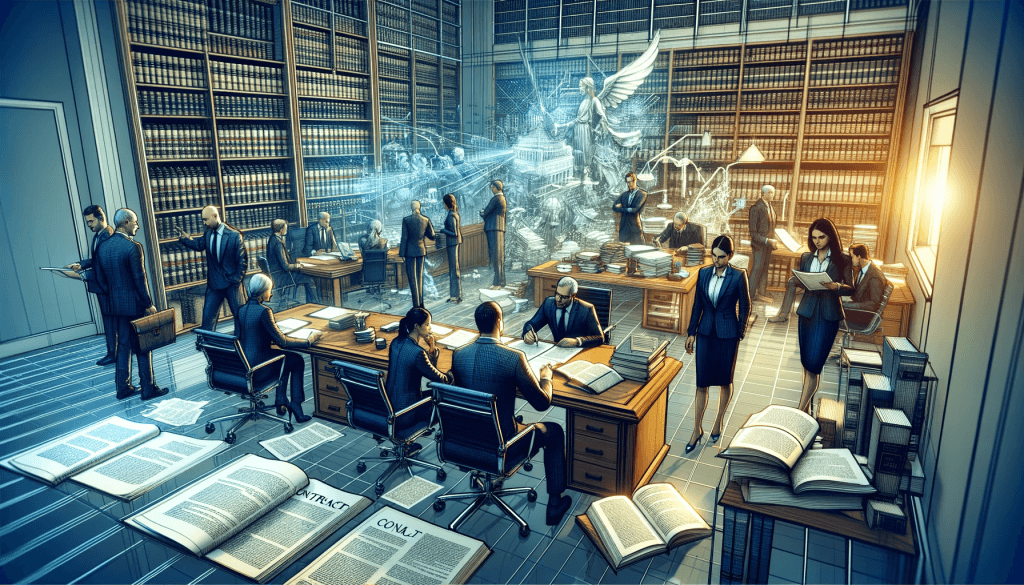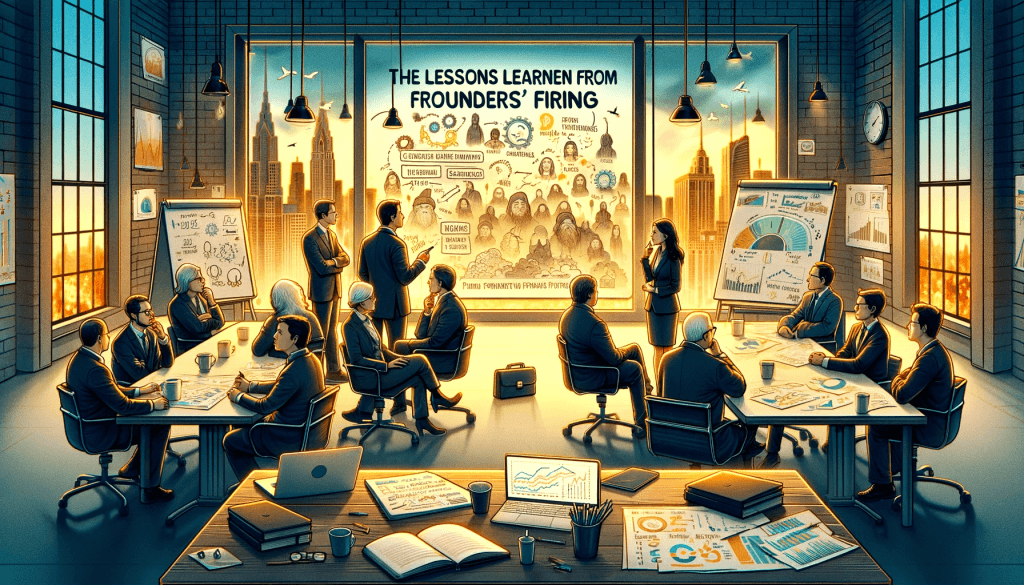In an extraordinary twist of fate that’s more common than a blue moon, founders can get booted from their own companies. ’10 Founders Fired From Their Own Businesses’ dives into this paradox, showcasing ten founders who faced the corporate guillotine.

From Steve Jobs at Apple to Travis Kalanick at Uber, it’s an intriguing exploration of power, leadership, and the cutthroat world of business. It’s not just a tale of downfall, but also a lesson on resilience and the art of bouncing back.
So, buckle up, because this roller coaster ride through corporate boardroom dramas is as enlightening as it is entertaining.
Key Takeaways
- Founders can be fired from their own businesses due to various reasons such as lack of leadership skills, poor financial management, conflict with board members, failure to adapt to market changes, and inability to meet company goals.
- The impact of founders being fired can include decreased investor confidence, loss of brand reputation, decline in employee morale, potential bankruptcy or closure, and the need for restructuring and new leadership.
- Legal and contractual factors such as shareholder agreements, board of directors’ authority, employment contracts, non-performance clauses, and breach of fiduciary duties can play a role in founders being fired.
- After being fired, founders may face challenges such as loss of identity and purpose, difficulty starting new ventures, reputation damage and public scrutiny, emotional and psychological impact, and financial consequences and loss of wealth.
Reasons for Founders’ Dismissals

There’s a variety of reasons why founders get fired from their own businesses, including lack of leadership skills, poor financial management, and conflicts with board members. It’s not a step taken lightly.
Founder dismissal consequences can shake a company to its core, damaging brand reputation and plummeting employee morale. But wait, don’t panic yet! Founder firing prevention strategies exist.
It’s crucial to establish clear roles, conduct regular performance evaluations, and foster a culture of transparency. No founder wants to face dismissal. It’s like being kicked out of your own party.
Therefore, honing leadership skills, managing finances astutely, and building harmonious relationships with board members becomes the need of the hour. After all, prevention is better than cure, right?
Impact on the Business

When a founder’s shown the door, it’s not just a personal blow; it sends shockwaves throughout the business, often resulting in decreased investor confidence and a drop in employee morale. The departure of a founder can lead to a void in leadership, causing confusion and uncertainty.
Though the founder’s exit might initially seem devastating, it’s not always the end of the story. Companies can recover, and sometimes, they emerge stronger, proving that a business is more than just its founder.
Noteworthy Founder Firing Cases

While it’s quite shocking, several high-profile founders have been ousted from their own companies, including iconic figures like Steve Jobs from Apple and Travis Kalanick from Uber. These noteworthy founder firing cases demonstrate the high stakes in the corporate world, even for those who create empires.
Here are five other famous founder dismissals:
- Andrew Mason, the quirky CEO of Groupon, got the boot due to declining sales.
- Jack Dorsey was ousted from Twitter due to internal conflicts.
- Dov Charney from American Apparel was shown the door over misconduct allegations.
- Jerry Yang, co-founder of Yahoo, was replaced following a failed Microsoft deal.
- Martin Eberhard, Tesla co-founder, was fired due to conflicts with Elon Musk.
These cases show that even founders aren’t immune to getting fired.
Legal and Contractual Factors

Although it may seem counterintuitive, founders can indeed be legally removed from their own businesses due to factors such as shareholder agreements, the authority of the board of directors, employment contracts, non-performance clauses, and breaches of fiduciary duties.
These legal and contractual factors aren’t just bureaucratic red tape. They’re designed to protect the company, its employees, and its investors. Even founders with the best intentions can falter under the pressure of running a business, and these measures ensure that the company can survive beyond its founder. Remember, it’s not personal, it’s strictly business.
Investors and Shareholders’ Role

Despite the legal and contractual factors that can lead to a founder’s dismissal, it’s crucial to understand that investors and shareholders often play a significant role in these decisions. Their influence stems from their financial stakes and the inherent power dynamics in corporations.
Investors and shareholders frequently exert pressure on the board to ensure profitability and protect their investments. They may push for a management appointment that aligns with their vision. They can demand transparency and accountability in the business operations. Their dissatisfaction can lead to drastic decisions, including founder dismissals. In extreme cases, they may even advocate for the sale or acquisition of the business.
In essence, investor pressures and the appointment of new management can significantly shape a founder’s fate in their own company.
Post-Firing Challenges for Founders

So, what happens to founders after they’re ousted from their own companies? Often, they’re hit with a massive emotional toll. It’s like a punch to the gut. They’ve poured their heart and soul into building their company, only to be shown the door. The public humiliation can be unbearable.
But it’s not all doom and gloom. Many founders use this setback as a launchpad for new ventures. They dust themselves off, learn from their mistakes, and start plotting rebuilding strategies. They embrace the chance to start afresh, often coming back stronger and more determined. With the right mindset, they see the firing as a detour, not a dead-end.
Yes, the journey is tough, but as they say, what doesn’t kill you makes you stronger!
Lessons From Founders’ Firings

It’s crucial to learn from the experiences of founders who’ve been ousted from their own companies. These lessons can provide a roadmap for navigating future ventures and rebuilding after dismissal.
- Adapting to Change: Embrace market shifts and adapt your business model accordingly. Ignoring changes can lead to a downfall.
- Investor Relations: Nurturing relationships with investors is key. Transparency and clear communication foster trust.
- Leadership Skills: Strong leadership isn’t just about vision; it involves inspiring and guiding your team towards success.
- Conflict Management: Disagreements are common but resolving them effectively is essential. Don’t let conflicts escalate to the boardroom.
- Financial Prudence: Irresponsible financial decisions can jeopardize the company’s survival.
Preventing Founder Dismissals

Building on the lessons learned from founders’ firings, there are effective strategies that can be implemented to prevent such dismissals from occurring in the first place. Having a succession plan and a strong support network are key to a founder’s tenure.
With these strategies in place, the founder’s dismissal can be averted, ensuring a smoother transition when the time comes. The founder’s vision remains integral to the company’s growth while mitigating risks associated with abrupt leadership changes.
Founders’ Contribution to Success

Despite the risk of dismissal, founders play a pivotal role in driving the success of their businesses. They’re often the visionaries, crafting innovative strategies that propel the company forward. They introduce new ideas, products, or services that disrupt the market. Founders understand their business like no one else, leveraging this knowledge for success. They’re passionate, often risking personal assets for the business. Founders cultivate a strong company culture, attracting talented employees. They inspire loyalty and dedication in their team.
Their passion, vision, and dedication often become the lifeblood of the company, driving its growth and success. In many ways, the founder’s spirit embodies the company, making their contribution invaluable. Their dismissal can result in a loss of direction and identity for the business.
Moving Forward After Firing

After a founder is fired, there are several steps they can take to rebuild their career and move forward professionally. It’s not an easy road, but with the right rebuilding strategies, it’s possible to bounce back stronger than before.
They can view this setback as a personal growth opportunity, a chance to learn from past mistakes and hone their business acumen. They shouldn’t shy away from seeking advice or mentorship, as a fresh perspective can often illuminate the path to victory.
Networking is crucial in this phase, as it opens doors to new collaborations and opportunities. They can invest time in personal development, enhancing leadership skills, and expanding their industry knowledge.
Frequently Asked Questions
What Are Some of the Emotional Coping Mechanisms Founders Can Use After Being Fired From Their Own Businesses?
After getting fired, founders can harness their resilience and emotional intelligence. They can practice mindfulness, seek support, and channel their energy into new projects, turning the setback into a stepping stone for future success.
Can Fired Founders Legally Start a Competing Company in the Same Industry?
“Absolutely, fired founders can start a competing business. However, they’d need to dodge non-compete clauses’ impact and be wary of contract breach repercussions. It’s a risky move, but it’s not legally impossible.”
How Does the Founder’s Firing Affect Existing Partnerships and Collaborations With Other Businesses?
When a founder’s fired, it shakes up existing partnerships. Stakeholder communication becomes crucial for partnership rebuilding. Trust needs re-establishing, negotiations may restart, and reassurances given that business continuity and shared goals remain unaffected. It’s a tricky road, but navigable.
How Do Founders Reflect on Their Firing in Retrospect, Years After the Event?
In retrospect, founders often view their firing as a resilience test. They’ve learned invaluable lessons, grown, and sometimes even started new ventures. Employee reactions vary, some feel betrayed, others see it as inevitable change.
What Are Some Notable Success Stories of Founders Who Were Fired, but Then Went on to Achieve Greater Success?
“Riding the phoenix of resilience narratives, Steve Jobs’ return to Apple epitomizes a success mindset. Despite initial firing, he later revolutionized personal tech, proving life’s second acts can eclipse the first in brilliance and impact.”
Conclusion
In the unpredictable theater of entrepreneurship, founders can find themselves shockingly unseated from their own creations. From Steve Jobs to Travis Kalanick, the saga reveals a turbulent blend of leadership struggles, investor pressures, and legal wrangles.
Yet, amidst the chaos, the phoenix can rise again, teaching invaluable lessons and paving the way for a stronger comeback. The founder’s firing, while a dramatic plot twist, isn’t the end of the entrepreneurial journey, but often a painful detour towards greater success.


